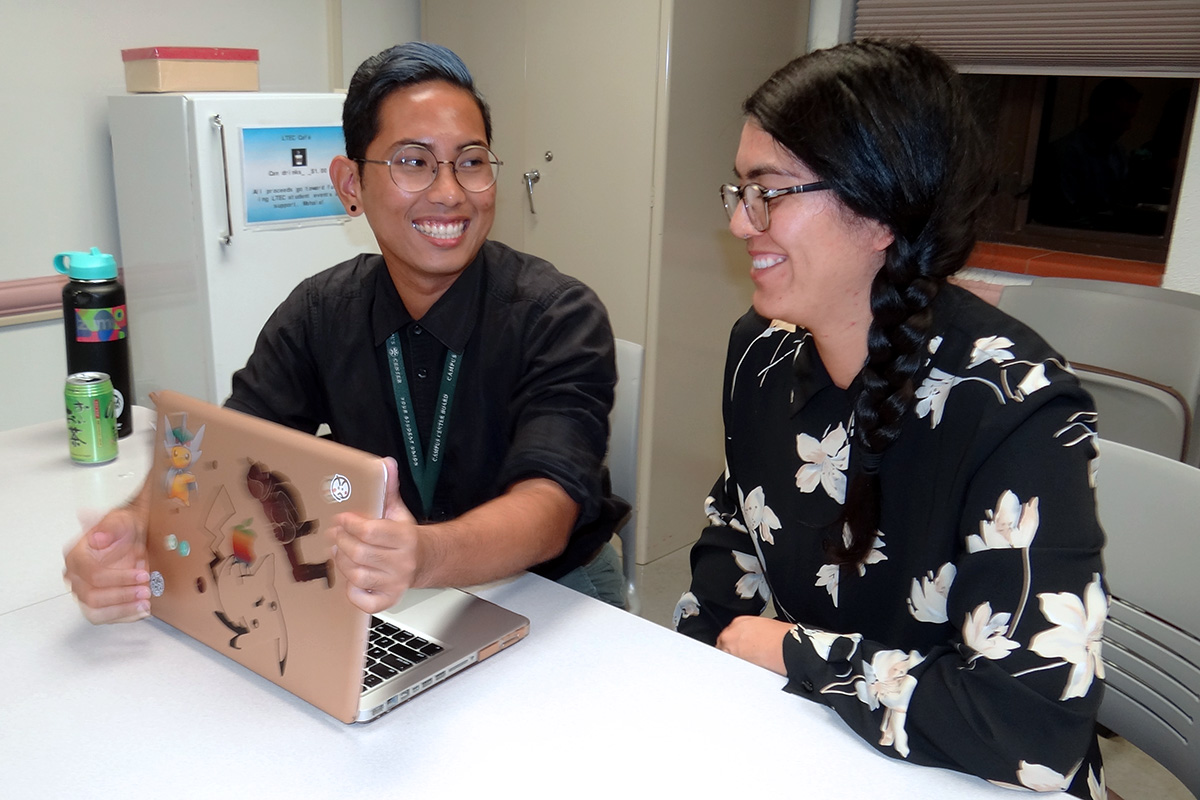LTEC and Library Information Sciences
MEd, Learning Design & Technology and MLISc, Master of Library and Information Science
FAQs
Application
Applicants interested in pursuing a dual degree must submit separate applications to each program; entry requirements for both graduate programs must be met and both programs must be started in the same semester. Consider, also, that some programs accept new students in both fall and spring semesters, while other programs may only accept new students in the fall semester.
The LTEC department does not require applicants to include a particular element in their Statement of Objectives however we do provide applicants with a Statement of Objectives guide to steer them in the right direction.
Forgotten PINs cannot be recovered. You must create a new Login ID and PIN and start a new Graduate Division application.
If your GPA is significantly below 3.0, consider taking some post-baccalaureate college or university courses (for credit) before applying. Graduate Division, which evaluates applicants' meeting the overall university graduate admission criteria, recommends resubmission of the application after at least 12 credits of graduate courses are earned with a B or better average. These courses cannot be in the field of study to which the applicant is seeking admission. Please contact the LTEC department at ltec@hawaii.edu for any questions.
The faculty review committee begins reviewing applications after the deadline. You can expect to the committee to come to a decision regarding your application around late April or early May; the information will be sent out around that time. It is also possible for this information to be released earlier or later than the aforementioned months.
During the mandatory orientation, mentioned in the acceptance letter, any questions about registering for courses as well as any additional questions you might have regarding the program will be answered. You will also be assisted with registering for classes during this day.
Eligibility
The Graduate Record Examination (GRE) is not an admission requirement of the LTEC Master’s program. LTEC Master’s applicants are only required to have a baccalaureate degree from an accredited institution in any field of study is acceptable to the Department. At minimum, the applicant needs to demonstrate above average academic performance (B average, i.e., 3.0 on a 4-point scale) in the last 60 semester hours of the undergraduate program or for post-baccalaureate or graduate course work.
Applicants with foreign nationalities (i.e. not USA) who have completed their Bachelor’s or Master’s in the United States do not need to take the TOEFL.
The Department of Learning Design and Technology abides by the required minimum scores as set by the UH Manoa Graduate Division. As such, there may not be a minimum score requirement. Nonetheless, test scores should reflect an adequate understanding of English.
No, a teaching license is not required for admission into any LTEC program.
No, but some experience in teaching or training is useful. What is important is the applicant's understanding of and commitment to the field of educational technology.
A bachelor's degree in any field is acceptable, as long as it has been earned at an accredited institution; the GPA (Grade Point Average) of 3.0 on a 4-point scale is necessary to consider the applicant for regular status admission. Majors in Journalism, History, Political Science, Computer Science, and Nursing, among others, have successfully graduated from the program.
No, required courses are only offered in the fall and spring semesters, and must be completed in sequence. However, many students complete electives during summer sessions. In the first year, students must take two required courses in each of their first fall and spring semesters.
Coursework
Yes, you may take LTEC courses as an unclassified graduate student. However, please note that you will only be able to transfer up to 6 credits (2 courses) into the Master’s program, which is subjected to approval by the program coordinator. These LTEC courses will need to be taken within 3 years of being accepted into the MEd program. Consult the program coordinator prior to registering for courses. To have credits from LTEC courses that you have previously taken count towards your degree, you will need to fill out a Petition to Transfer Credits Form and send it back to the LTEC office.
Yes. To start taking classes in summer, you will need to apply to the Outreach College as an unclassified graduate student until you are accepted into the program. After you are accepted, you will need to transfer your credits toward the program. Please contact the LTEC Office (ltec@hawaii.edu) for more information on applying for summer courses as an unclassified graduate student.
Depending on the Degree Plan, students have an option of completing a Master's thesis under Plan A or a design/research project under Plan B (selected by the student and approved by an advisor).
Yes, up to 6 credits (2 courses) can be transferred into the Master’s program. These credits must be taken within 3 years of being accepted into the MEd program and are subject to approval by the program coordinator. To have credits from LTEC courses that were previously taken count towards your degree, you must fill out a Petition to Transfer Credits Form. For more information if your credits are eligible for transfer, please visit the Transfer & PBU Credits page on the Graduate Division website.
You would have to get the instructor’s approval by contacting them via email. Please contact the LTEC office at ltec@hawaii.edu for further assistance if the instructor is unavailable.
The minimum time is three academic years of full-time study, which would mean 3-4 courses in each fall and spring semester in three years. Typically, these days most students are working adults who find it difficult to maintain a full-time course schedule. Most students complete the program in four years but some take longer depending on the number of courses taken per semester. Remember that in addition to class time, graduate courses require a significant commitment to reading and other coursework beyond the hours in the classroom.

